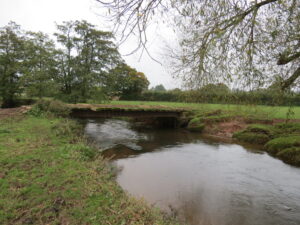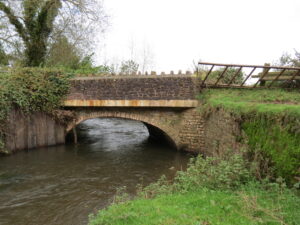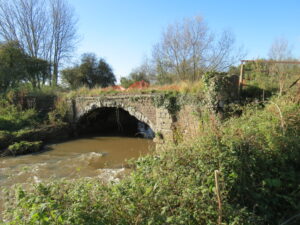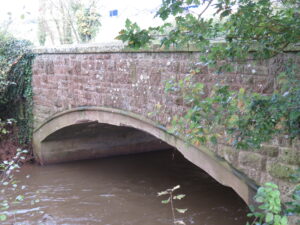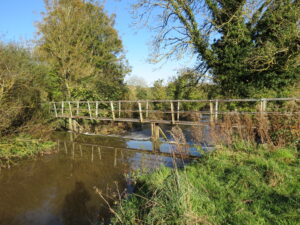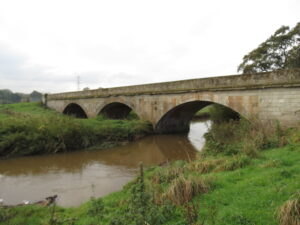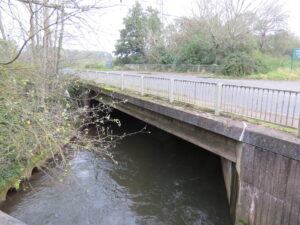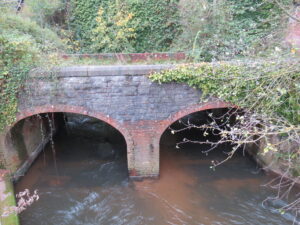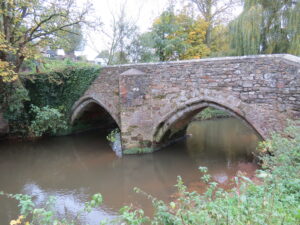
| ridge Name: | Bradford Bridge | |||
| No.: | 48 | |||
| Location: | 51.00037,-3.18146 Oake Road | |||
| Build Date: | Medieval Circa 15th Century | |||
| Engineer: | Said to have been ‘built by the monks’, | |||
|
|
||||
| Description: | ||||
| Road bridge built of random rubble local stone, ashlar dressings. Two arch span, 4-centred arches chamfered in 2 orders, soffits partly renewed in brick, central cutwater, string course, renewed parapet with chamfered coping. Said to bear date 1698 on parapet. Restored 1698, and late C19.
Road bridge over River Tone. C15, restored 1698, and late C19. Random rubble local stone, ashlar dressings, 2-arch span, 4-centred arches chamfered in 2 orders, soffits partly renewed in brick, central cutwater, string course, renewed parapet with chamfered coping. Said to bear date 1698 on parapet but not visible at time of survey (January 1985). Sheduled Ancient Monument (Somerset County No 104). (Photograph in NMR; Mathews, Bradford and its History, 1925). English Heritage Listed Building Number: 270946. First Listed on 25/01/1956.1 In 1617 the inhabitants of Bradford parish were liable to repair at least seven timber bridges and five stone bridges, including two major bridges over the Tone – one near the village and another 3 miles away at Hele, both of which were probably built in the 15th century. Bradford Bridge became a County Bridge before 1667. The Justices of the Peace also took responsibility for repairing 100 yards of each approach road, as was stipulated in the Bridges Act of 1530. On each approach to every Somerset County Bridge there was set up a stone inscribed “CBB”, which marked the “County Bridge Boundary”. By 1860 there were over 150 County Bridges, but only a handful of the boundary stones still survive, one of which stands on the west side of the entrance to the White |
||||
| References: | /www.tauntondeane.gov.uk/tdbcsites/her/her_lb/lbdets.asp?id=001118″>Taunton Deane B C, The Ancient Bridges of the South of England by Jervoise. 1. Somerset HER 40892 3. Bridges Along the Tone – SCC Highways
|
|||
